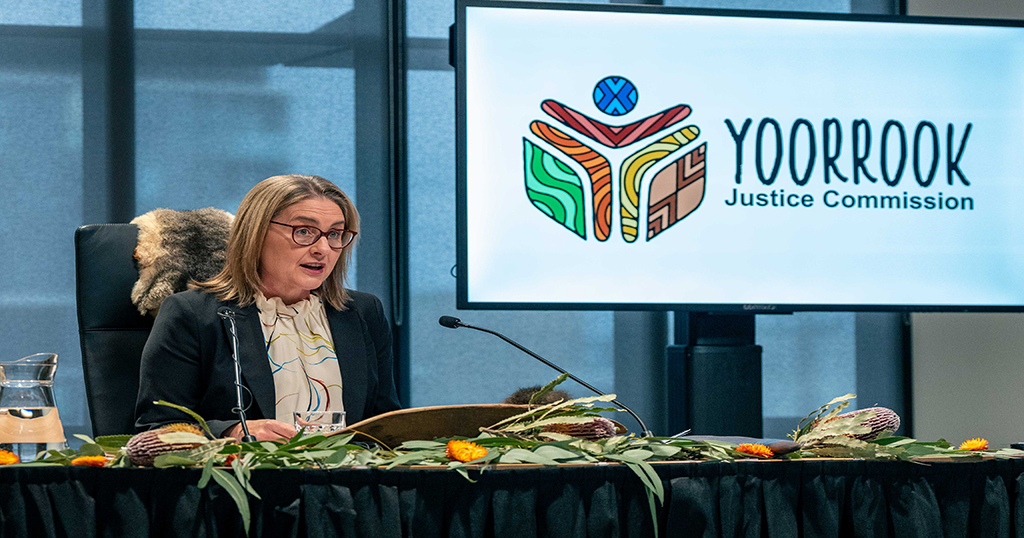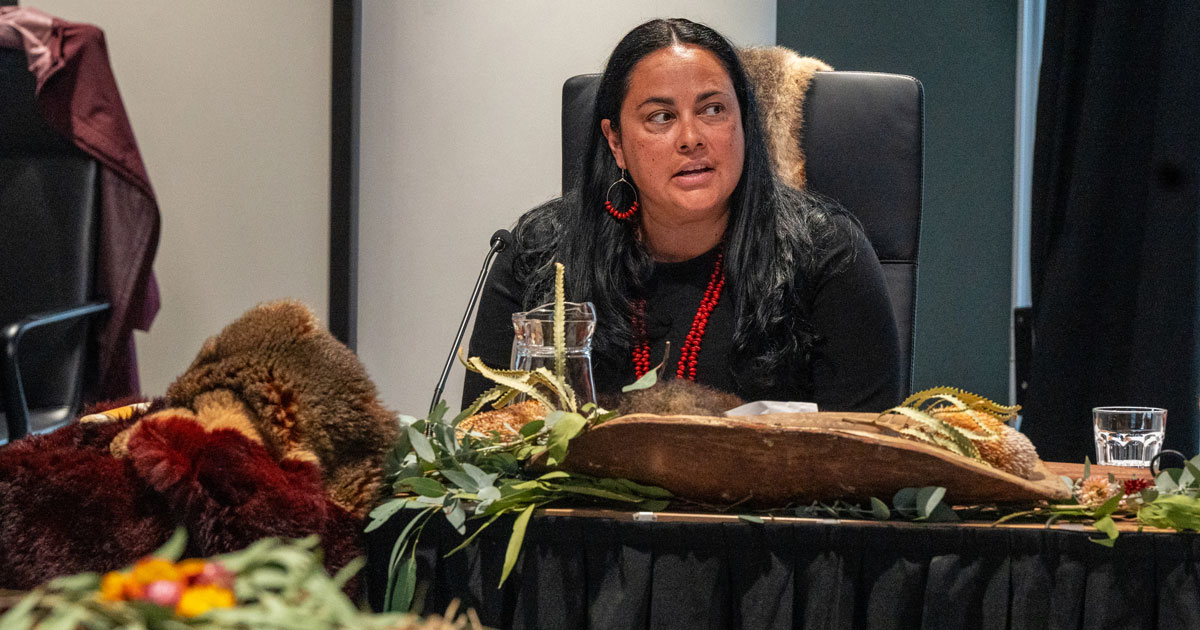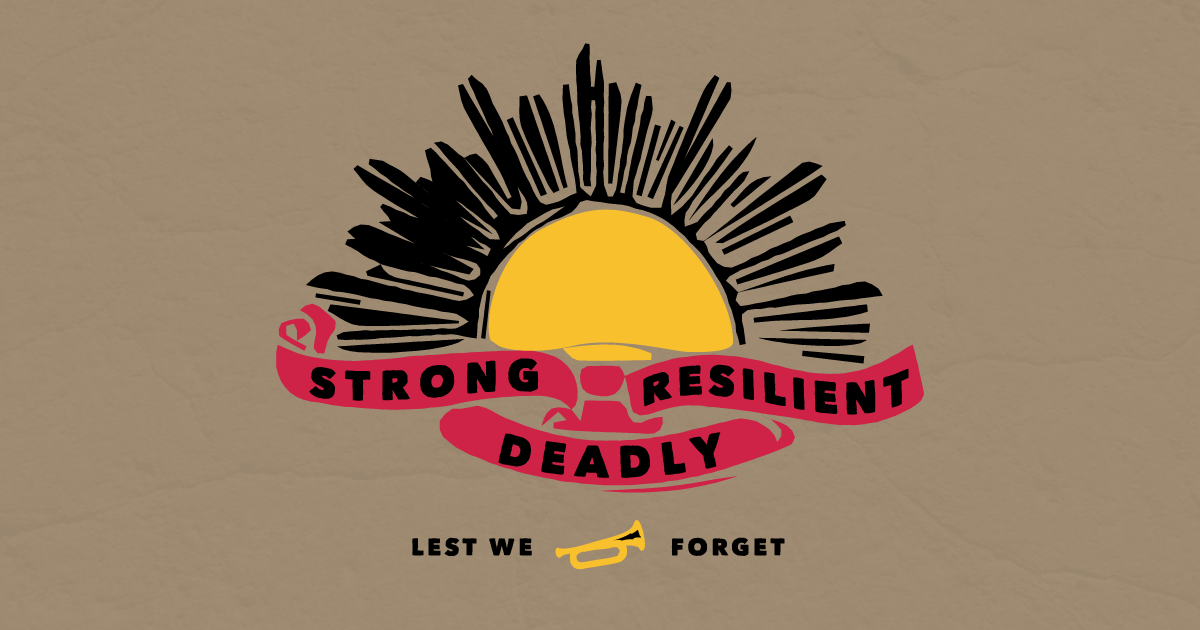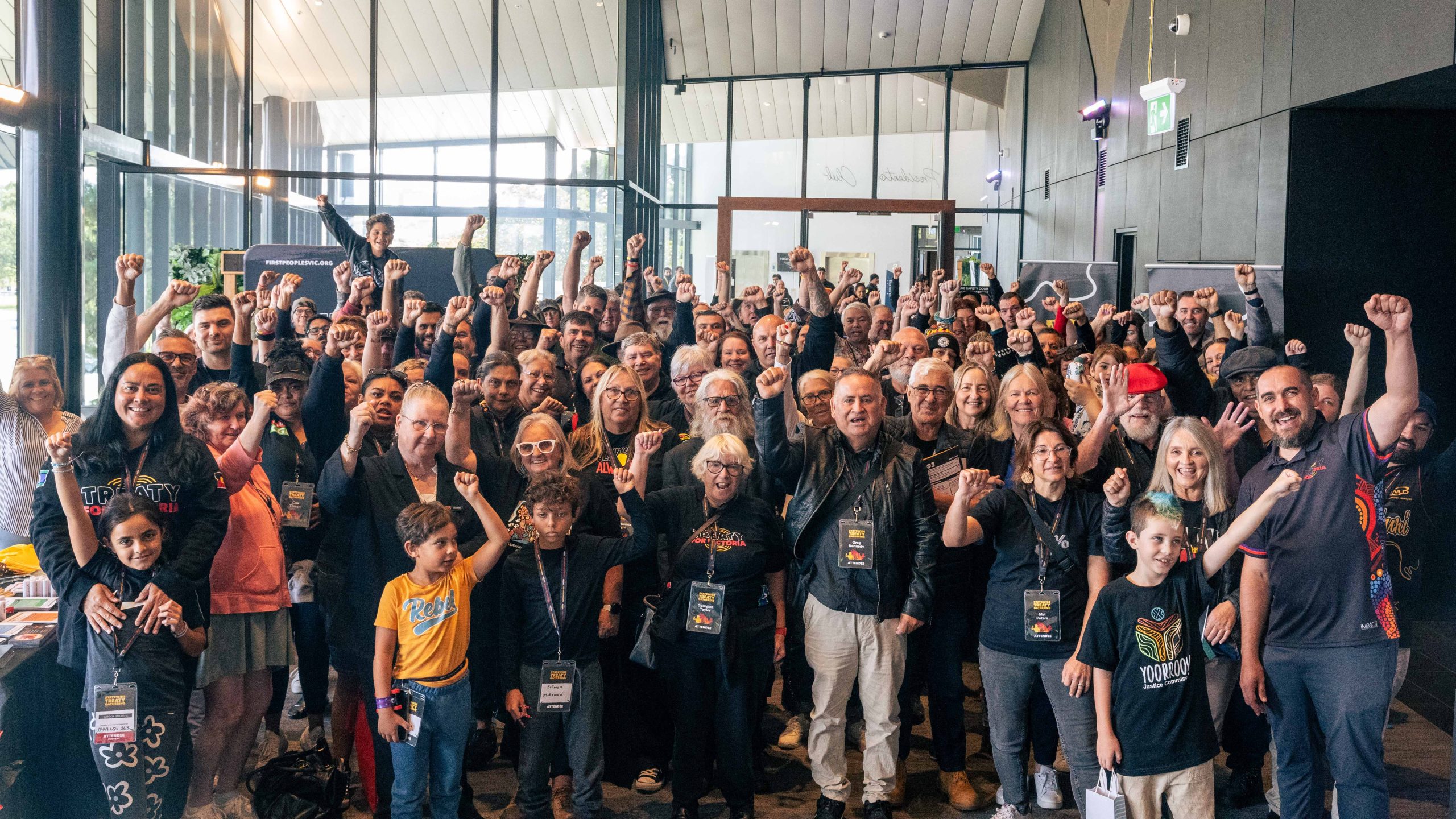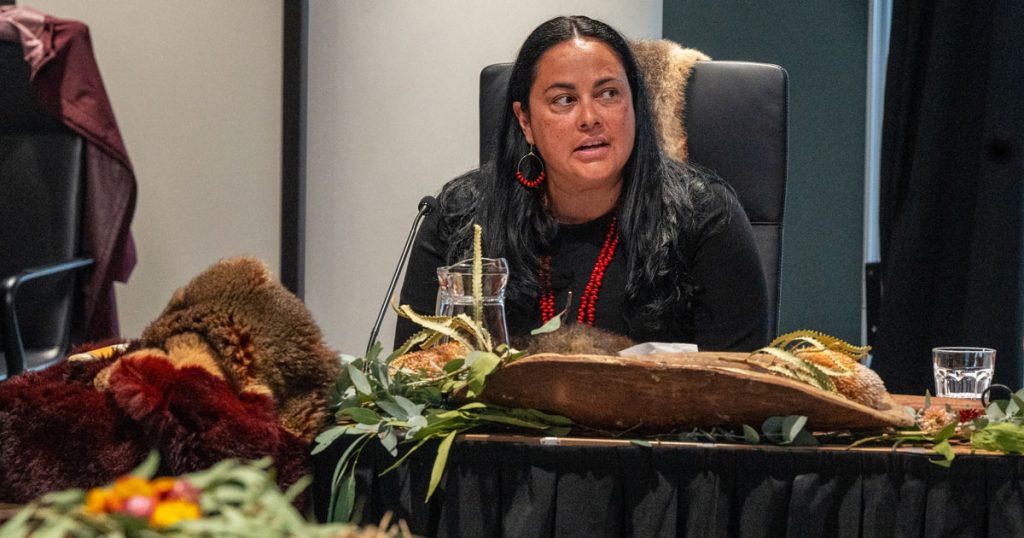
Assembly Co-Chair, Ngarra Murray’, opening statement to Yoorrook Justice Commission.
The Assembly Members pay respect to the warriors of the frontier wars and resistance fighters who made the ultimate sacrifice protecting their Country. We mourn our ancestors with the honesty and integrity they deserve.
It’s a great privilege and responsibility to be part of this important truth-telling process.
I want to start by acknowledging the Traditional Owners of Country where this office of the Yoorrook Justice Commission is located – on the lands of the Wurundjeri Woi-wurrung people. I recognise the care they have for their country, and their ongoing work to protect and heal Country.
I’m here today in a combination of roles. I’ll share my stories as someone with a deep connection to my lands and communities. As a First Nations woman of the Wamba Wamba, Yorta Yorta, Dja Dja Wurrung, Dhudhuroa, Djupagulk and Baraparapa. But I’m also here, with Rueben Berg, as the Co-chair of the First Peoples’ Assembly of Victoria. Thanks to all the other Assembly Members who have come along today to be here with us.
I know many in our communities have faced incredible injustice in their lives and many carry the weight of intergenerational and collective trauma. I hope our truth-telling and answers to your questions will contribute to the healing process.
Before we get going, I want to try to summarise some thoughts about our Country.
It’s sometimes difficult to put into words for those who are not First Peoples what Country means to our people. Country is the essence of who we are. Country is in our blood, and our blood is in this Country.
Our countries – right across this State – hold the markings of our history. This is Country that has felt thousands of generations of footsteps and was criss-crossed by our families. Our Country was pristine and plentiful of resources. We lived in harmony with the land and waters, within kinship structures, and where the foundation of our relationships was based on our co-existence.
We worked alongside, and as part of our environments, connecting us to every part of the cosmos – lands, waters, sky, stars, plants, totems.
We had ceremonies, song lines, and trade with our neighbouring tribes.
We came from ancient jurisdictions made up of tribal territories, lores, traditions, rules and values, that were effective for thousands of years, and which tribes continued to adapt, and collectively organise ourselves.
Our people’s relationship with Country has been formed over thousands of generations. This unique connection has built up a profound intelligence and specialised knowledge about caring for it. Our old people instilled in all of us a culture of caring for the environments, their old people told them the same, and we tell our children.
The disruption to our society was catastrophic. Invasion and colonisation saw concentrated and sustained attempts to smash our societal structures and eradicate our people.
The colonisers approach to land management pushed our lands to the brink of ruin. The colonisers exploited Country for the highest short term economic benefit. The Dja Dja Wurrung use the term “upside down country” to describe the enormity of impacts that colonisation has had on our lands from land clearing and gold mining.
The harm caused by dispossession cannot be understated. And while the theft may have commenced 200 years ago, the negative effects have rippled down generations and compounded the unfairness.
Despite everything that has been inflicted on us, all the pain and suffering, we have survived, and our connection to Country remains strong. Our story in the land.
The fight for land justice began with our ancestors and continues today. Land justice is foundational to our journey to freedom, self-determination and empowerment.
Today we’re faced with a divide between those who’s wealth was stolen and those who grew and passed down that stolen wealth. This is what we need to address. This is why we need to negotiate a better, fairer deal for our people through Treaty.
The Assembly has a strong purpose, and that is to reclaim our people’s power and freedom to make the decisions that affect our families, our communities, our Country, our lands and waters.
In Treaty, we have a critical opportunity to heal the land. When we can repair, rekindle and expand our ability to care for Country, both the land and our communities will thrive. When that happens, everyone benefits.
In closing, I want to thank the Yoorrook Justice Commissioners and acknowledge the important work they do.
In establishing this Commission, we gifted to the Commission the Wamba Wamba/Wemba Wemba word “Yoorrook” — meaning “Truth” — to represent the value of our living culture and the importance of First Peoples being at the centre of the Commission’s inquiry.
The word “Yoorrook” pays homage to a long line of warriors, men and women, who have fought over generations against the callous, discriminatory and oppressive forces of injustices and human rights abuses against First Peoples.
The Assembly has been pleased with the extent to which this Commission has given effect to, and respected, the significance of this term throughout its inquiry.
Finally, on behalf of the First Peoples’ Assembly of Victoria we offer our gratitude to the many First Peoples who have shared their stories for truth-telling.
Thank you, Tony and Commissioners, for letting me warm up. Rueben and I will be happy to answer any questions on behalf of the Assembly.
